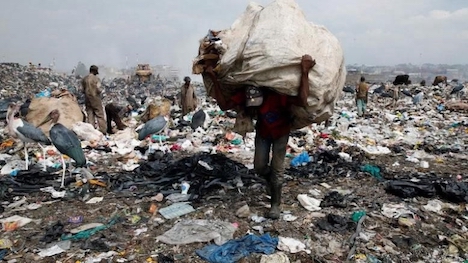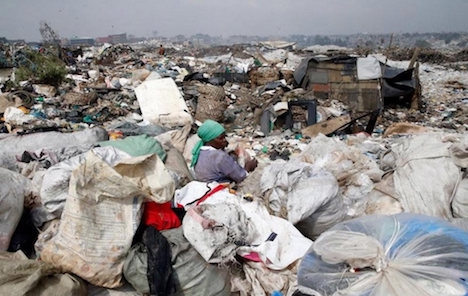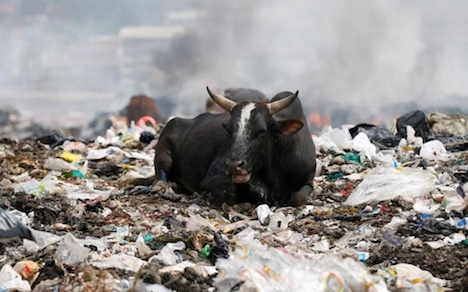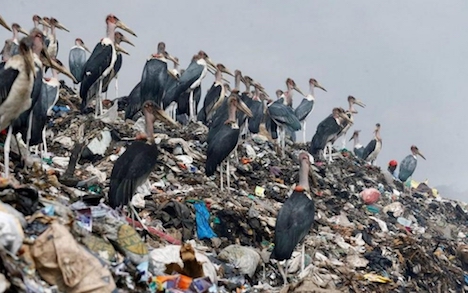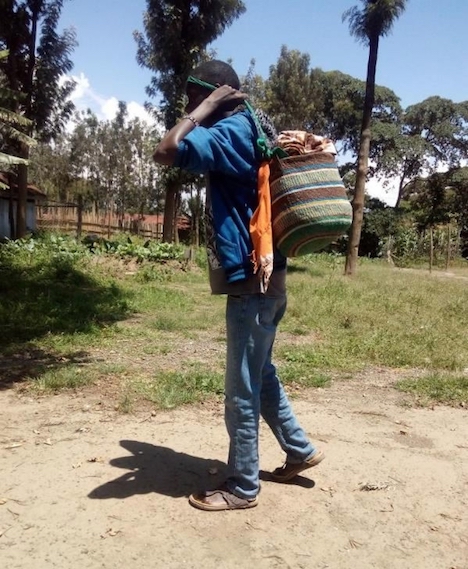Starting tomorrow, January 15, the world’s toughest law aimed at reducing plastic pollution came into effect in the East African nation of Kenya. According to the new law, producing, selling or even using plastic bags in Kenya would lead to fines up to 40,000 US dollars or even imprisonment up to four years, Reuters reports. This is not the first time Kenya tried to restrict the production and consumption of plastic bags. In fact, the newly enforced law marked the third time local officials tried to cut down on the use of plastic bags in Kenya, where an estimated 100 million such bags were given out by supermarkets every year.
Previous attempts, which focused on banning bags of a certain level of thickness, were never fully carried out. In Kenya, plastic bags have littered roads, clogged sewers and streams, damaged soil and water sources and posed danger to animals that wronged the bags for food sources.
In addition, many plastic bags have drifted into the ocean, strangling turtles, suffocating seabirds and filling the stomachs of dolphins and whales with plastics and other waste until they die of starvation. “If we continue like this, by 2050, we will have more plastic in the ocean than fish,” said Habib El-Habr, an expert on marine litter working with the United Nations Environment Programme (UNEP) in Kenya. Plastic bags, which El-Habr says take between 500 to 1,000 years to break down, also enter the human food chain through fish and other animals.
While supporters of the ban in Kenya claim it will give rise to new businesses, not everyone is a fan. Samuel Matonda, spokesman for the Kenya Association of Manufacturers, said it would cost 60,000 jobs and force 176 manufacturers to close, as Kenya is a major exporter of plastic bags. Despite the complaints, Kenyans are learning to adjust to life without plastic bags by opting for cartons, paper bags and envelopes. Grocery stores and restaurants have switched to selling and using reusable fiber bags and cardboard boxes.
Kenya has now joined more than 40 other countries that have banned, partly banned or taxed single use plastic bags, including China, France, Rwanda and Italy. In China, restrictions on plastic usage were enforced back in 2008. Retailers across the country were banned from providing plastic bags for free and manufactures were prohibited from producing ultra-thin bags under certain thickness. Source URL |
